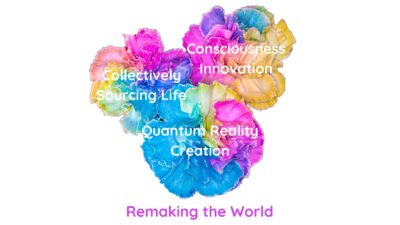
I love consciousness. I love Life. I love the universe. And I love this planet. Putting all that together over the last 25 years has resulted in me (along with many of my maestro buddies) becoming consciousness innovators, sources of thriving Life and quantum reality creators. Let’s have a look at each of these to see how they have helped us remake, reshape and elevate the world.
CONSCIOUSNESS INNOVATION … Consciousness is a malleable, sentient, source canvas in which all things can be remade into new possibilities for us all. I partner with consciousness as the universal dream field of possibilities, as the infinite intelligence pouring new ideas our way. As a consciousness innovator I enter this partnership as the ALL, the Dreaming, the Source, the Universe … not as a small person trying to solve a problem, but as a vast universal intelligence seeking a point of physical sourcing to pour its dreaming of us all through. In order to achieve this, I surrender my sense of self and then, in the moment of sourcing, discover a level of mastery I didn’t know existed. I discover a level of myself and of us all that is just waiting to pop into life to elevate us all.
SOURCING LIFE … In recent years, Source energy / intelligence / power has been downloading into the Earth and into all life forms upon it. Source can be defined in any way that suits (Universe, Infinite, Divine, God, Creator, etc., etc.). From my own experience with Source so far I would call it the Dreamer come awake from the Dream and ready to see that Dream pour into Life for all to thrive in magnificent new ways. Finding Source within one’s self and in connection with all Life is an incredible adventure … fulfilling, connective, passionate, invigorating and powerful. In our Murmuration of Maestros work, we recognise the Source within each other and then connect as Source, each representing unique facets of Source and bringing through awesome breakthrough discoveries of how life might be now on this world. We enter into the art of sourcing Life and discover that there are universal powers and forces that support the new becoming of us all. Together we source the new Dreaming into reality for this world and beyond.
QUANTUM REALITY CREATION … The quantum field for me is a field of possibilities, ideas, innovations and new creations that are just waiting to pop into being. As quantum reality creators we learn how to activate and actualise these genius possibilities into reality. We dance in the matrix of reality to refabricate it and remake into something ever more wonderful. This dance sources from our love of life, our connection with the Infinite and our ability to power up new’ness into the field of reality.
I believe that there is beauty in the world and in the universe and I believe that beauty contains a powerful elixir for us all to thrive upon. To play a part in that beauty, that new Dreaming, coming alive for us all is one of the most spectacular things I could want to give my life to.
Consciousness innovator. Sourcing the new Dreaming of us all. Quantum reality creator. I am fulfilled and in love with all who share in creating these art forms with me.
About the Author:
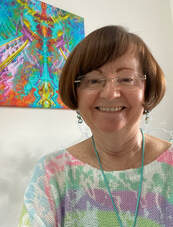
Soleira Green is a visionary author, quantum coach, ALLchemist & future innovator. She has been creating leading edge breakthroughs in consciousness, quantum evolution, transformation, innovation, intelligence and more over the past 25 years, has written and self-published eleven books, and taught courses all over the world on these topics.


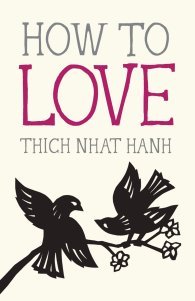 That’s what legendary Vietnamese Zen Buddhist monk, teacher, and peace activist Thich Nhat Hanh (October 11, 1926–January 22, 2022) explored in How to Love — a slim, simply worded collection of his immeasurably wise insights on the most complex and most rewarding human potentiality.
That’s what legendary Vietnamese Zen Buddhist monk, teacher, and peace activist Thich Nhat Hanh (October 11, 1926–January 22, 2022) explored in How to Love — a slim, simply worded collection of his immeasurably wise insights on the most complex and most rewarding human potentiality.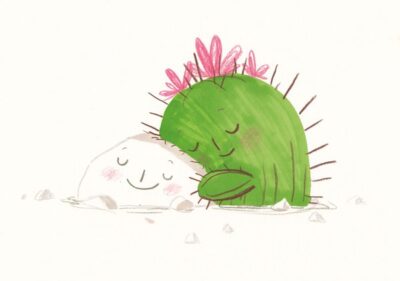 And yet because love is a learned “dynamic interaction,” we form our patterns of understanding — and misunderstanding — early in life, by osmosis and imitation rather than conscious creation. Echoing what Western developmental psychology knows about the role of “positivity resonance” in learning love, Nhat Hanh writes:
And yet because love is a learned “dynamic interaction,” we form our patterns of understanding — and misunderstanding — early in life, by osmosis and imitation rather than conscious creation. Echoing what Western developmental psychology knows about the role of “positivity resonance” in learning love, Nhat Hanh writes: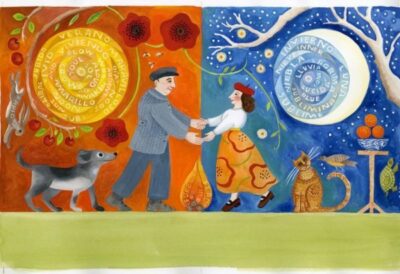
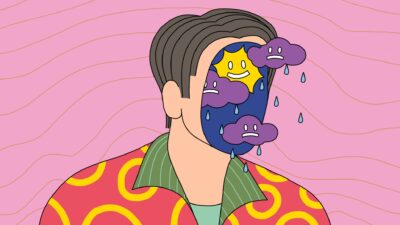 In 2007, a group of researchers began testing a concept that seems, at first blush, as if it would never need testing: whether more happiness is always better than less. The researchers asked college students to rate their feelings on a scale from “unhappy” to “very happy” and compared the results with academic (GPA, missed classes) and social (number of close friends, time spent dating) outcomes. Though the “very happy” participants had the best social lives, they performed worse in school than those who were merely “happy.”
In 2007, a group of researchers began testing a concept that seems, at first blush, as if it would never need testing: whether more happiness is always better than less. The researchers asked college students to rate their feelings on a scale from “unhappy” to “very happy” and compared the results with academic (GPA, missed classes) and social (number of close friends, time spent dating) outcomes. Though the “very happy” participants had the best social lives, they performed worse in school than those who were merely “happy.” Life has sped up. A never-ending stream of stimuli is vying for your attention every minute of the day. Some of it is fabulous and some of it is time wasting.
Life has sped up. A never-ending stream of stimuli is vying for your attention every minute of the day. Some of it is fabulous and some of it is time wasting. In a world where it is almost impossible to lose contact with friends, thanks to the likes of social media, this regret may seem irrelevant. You can send someone a text to say you’re thinking of them, comment on their Facebook feed or Instagram photo, or chat via Messenger. But how long is it since you’ve really connected with these people in real life? How long since you’ve laughed together, cried together, eaten together or just hung out?
In a world where it is almost impossible to lose contact with friends, thanks to the likes of social media, this regret may seem irrelevant. You can send someone a text to say you’re thinking of them, comment on their Facebook feed or Instagram photo, or chat via Messenger. But how long is it since you’ve really connected with these people in real life? How long since you’ve laughed together, cried together, eaten together or just hung out?